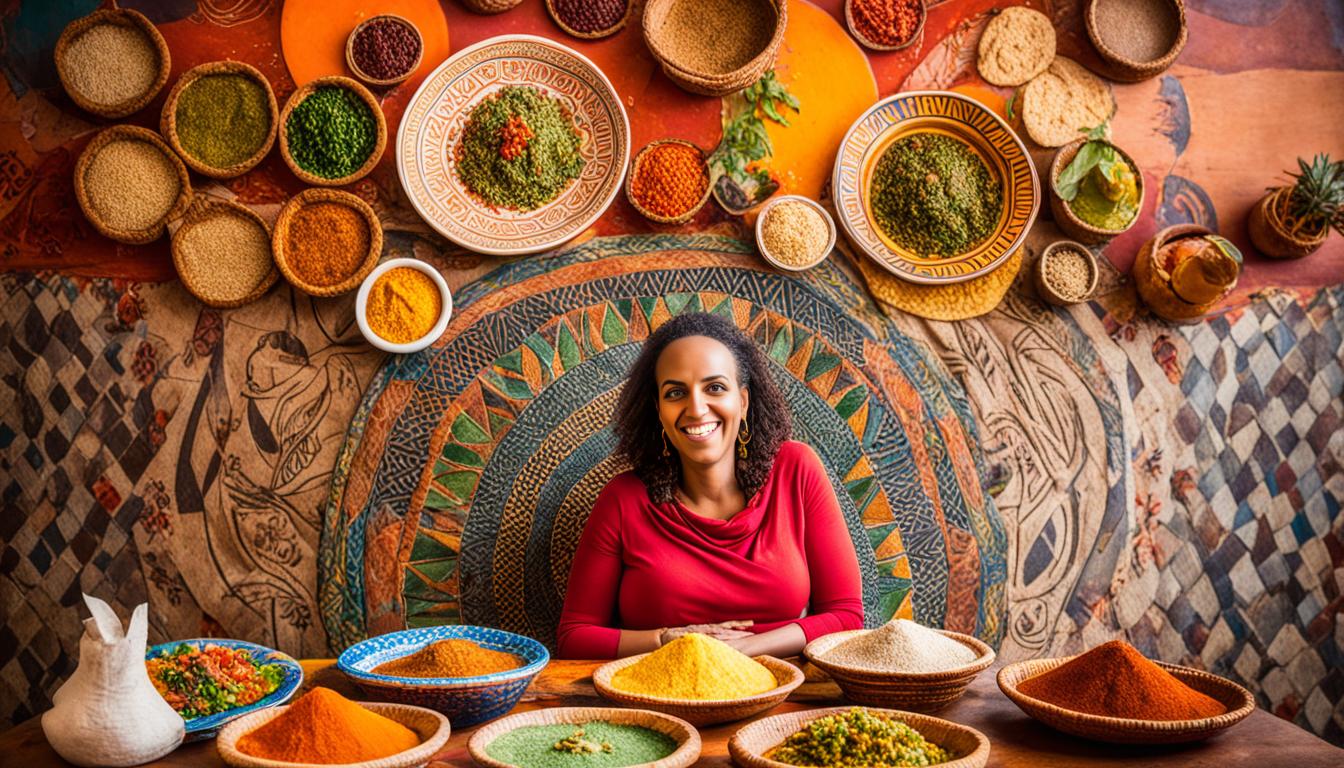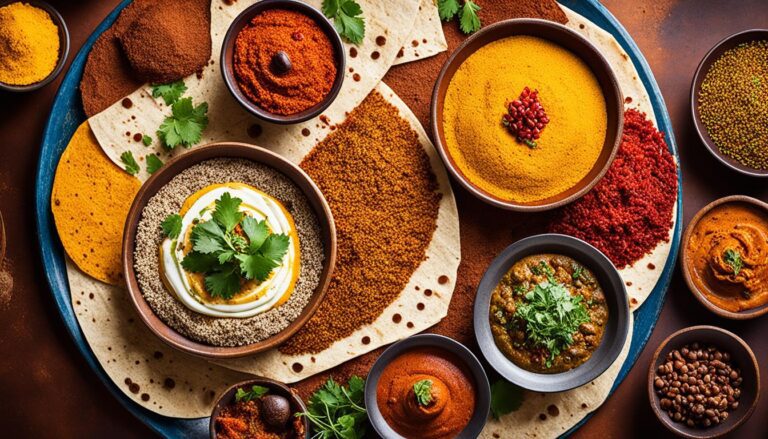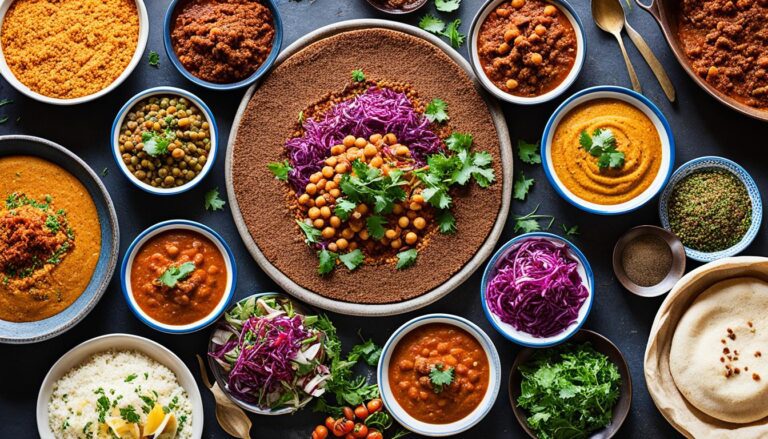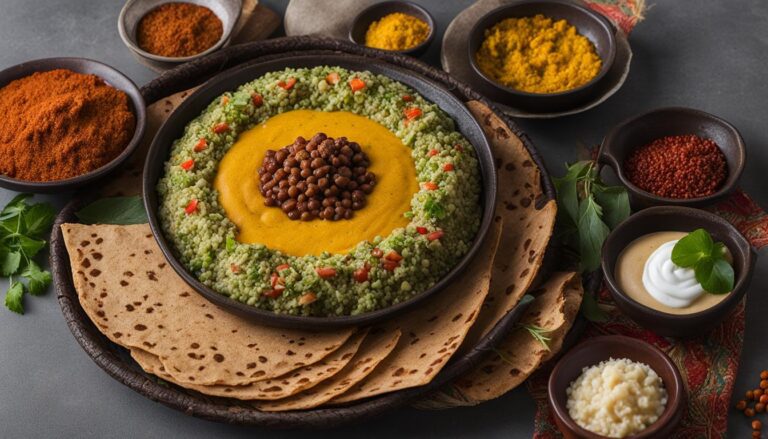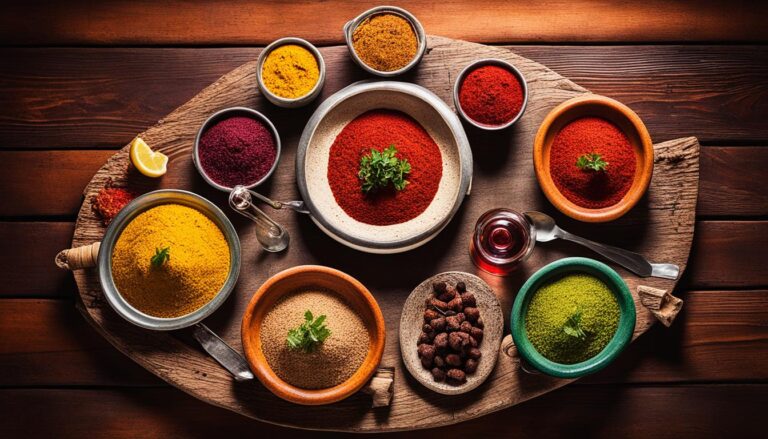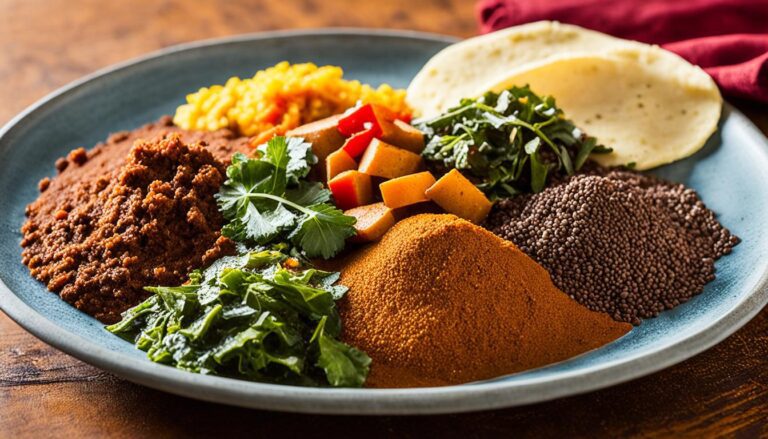Can You Eat Ethiopian Food When Pregnant
When it comes to pregnancy, there are numerous dietary restrictions and cautious choices that expectant mothers need to consider. But what about the vibrant and flavorful Ethiopian cuisine? Can you indulge in the enticing aromas and rich tastes of this East African fare without putting your baby’s health at risk?
In this article, we will explore the safety aspects of eating Ethiopian food during pregnancy. We will guide you on making informed choices, share essential information about Ethiopian cuisine and its impact on pregnancy, and provide valuable tips for enjoying this unique culinary experience while ensuring the well-being of both you and your baby.
Key Takeaways:
- Discover whether it is safe for pregnant women to consume Ethiopian food.
- Explore the characteristics of Ethiopian cuisine and its impact on pregnancy.
- Understand the safety considerations associated with Ethiopian food consumption.
- Find practical tips and guidelines for safely enjoying Ethiopian food during pregnancy.
- Learn about the importance of making informed choices and listening to your body’s needs during pregnancy.
Ethiopian Cuisine and Pregnancy
When it comes to exploring diverse and flavorful cuisines, Ethiopian food is truly a unique and exciting choice. Rich in aromatic spices, vibrant colors, and a variety of flavors, Ethiopian cuisine has gained popularity worldwide. But what about enjoying Ethiopian food during pregnancy? Let’s delve into the characteristics of Ethiopian cuisine and its popular dishes to understand how they can be a delightful addition to your pregnancy diet.
At the heart of Ethiopian cuisine lies injera, a traditional sourdough flatbread that serves as the foundation for many meals. Made from fermented teff flour, injera is a good source of iron, fiber, and B vitamins – all of which are important for the healthy development of you and your baby during pregnancy.
Another prominent feature of Ethiopian cuisine is the variety of spices used in their dishes. From the famous berbere spice blend, consisting of chili peppers, garlic, and a myriad of aromatic herbs and spices, to the fragrant and earthy flavors of mitmita, these bold spices not only add depth to the dishes but also provide potential health benefits. Many of these spices, such as turmeric and ginger, are known for their anti-inflammatory properties, which can be beneficial during pregnancy.
In Ethiopian cuisine, vegetables play a significant role, and most dishes are accompanied by a range of colorful, nutritious veggies. From the hearty yataklete kilkil (a mixed vegetable stew) to the flavorful shiro wat (a spicy chickpea stew), these vegetable-based dishes are often packed with vitamins, minerals, and antioxidants that support your overall well-being during pregnancy.
However, it’s important to note that certain Ethiopian dishes may include raw or undercooked ingredients, such as kitfo (raw minced meat) or tibs (sautéed meat). During pregnancy, it’s advisable to avoid consuming undercooked or raw meats to reduce the risk of foodborne illnesses. Instead, opt for well-cooked meat options or explore the array of vegetarian and vegan dishes available in Ethiopian cuisine.
By understanding the components and flavors of Ethiopian cuisine, you can make informed choices when selecting dishes to enjoy during pregnancy. The key is to prioritize safety by ensuring foods are properly cooked and avoiding high-risk ingredients. So, let’s explore the safety considerations for pregnant women and how to enjoy Ethiopian food without compromising your health or the health of your baby.
Safety Considerations for Pregnant Women
In this section, we will address the safety considerations that pregnant women should be aware of when consuming Ethiopian food. It is crucial to prioritize the well-being of both the mother and the baby during pregnancy, and understanding potential risks associated with certain Ethiopian dishes is essential. By being informed and taking necessary precautions, you can enjoy Ethiopian cuisine while safeguarding your health and that of your baby.
One important safety consideration is the potential presence of raw or undercooked ingredients in some Ethiopian dishes. Raw foods may harbor harmful bacteria or parasites that can pose risks to pregnant women and their babies. It is recommended to opt for fully cooked dishes and avoid consuming raw or partially cooked meats, fish, or eggs.

Another consideration relates to the alcohol-containing beverages commonly served with Ethiopian cuisine, such as tej, a traditional honey wine. Alcohol should be completely avoided during pregnancy due to the potential negative effects on fetal development. It is advisable to opt for non-alcoholic alternatives, such as refreshing fruit juices or herbal teas, to quench your thirst while dining on Ethiopian delicacies.
Additionally, paying attention to the hygiene and cleanliness of the restaurants or establishments where you consume Ethiopian food is crucial. Ensuring that the food is prepared and stored in a hygienic manner can help reduce the risk of foodborne illnesses.
In conclusion, while Ethiopian cuisine offers a delightful array of flavors and dishes, pregnant women should be mindful of safety considerations. Avoiding raw or undercooked ingredients and refraining from alcohol consumption are key steps for a safe and enjoyable Ethiopian dining experience during pregnancy. By prioritizing these safety measures, you can savor the rich cultural heritage of Ethiopian cuisine without compromising your health or the well-being of your unborn child.
Enjoying Ethiopian Food Safely during Pregnancy
In this section, we want to ensure that you can enjoy the deliciousness of Ethiopian cuisine while keeping yourself and your baby safe during pregnancy. We understand the importance of savoring the rich flavors and unique spices that Ethiopian food offers, and we are here to provide practical tips and guidelines to help you make informed choices.
When it comes to enjoying Ethiopian food safely during pregnancy, selecting healthy food choices is key. Vegetarian options can be a great choice as they often contain nutrient-packed ingredients like lentils, spinach, and chickpeas. These dishes not only provide essential vitamins and minerals but are also generally considered safer for pregnant women.
To further minimize any risks, it is important to ensure that all dishes are well-cooked. Cooking ingredients thoroughly helps eliminate potential harmful bacteria and parasites that could pose risks to you and your baby. Therefore, opting for fully cooked meat and well-cooked vegetables is strongly recommended.
Additionally, Ethiopian cuisine boasts a variety of aromatic spices that can enhance the flavors of your meal. However, it is essential to avoid excessively spicy or overly hot dishes that may cause discomfort or heartburn during pregnancy. Instead, choose milder spices like turmeric, cumin, and garlic to add flavor without any adverse effects.
Finally, always listen to your body and pay attention to any discomfort or reactions after consuming Ethiopian food. If you experience any unusual symptoms or have concerns, it is important to consult your healthcare provider for professional advice and guidance.
By following these tips and guidelines, you can safely enjoy the culinary delights of Ethiopian cuisine while nurturing yourself and your baby. Remember, it’s possible to savor the unique flavors of Ethiopian food without compromising your health or the well-being of your little one.

Conclusion
Throughout this article, we have explored the question of whether pregnant women can safely enjoy Ethiopian food. By considering the characteristics of Ethiopian cuisine and understanding the safety considerations, you can make informed choices to ensure the health and well-being of both you and your baby.
It is crucial to prioritize safety during pregnancy. Seek medical advice if needed and listen to your body’s needs. By doing so, you can enjoy the deliciousness of Ethiopian cuisine while minimizing any potential risks that may arise from certain dishes or ingredients.
Remember, making informed choices is key. Opt for well-cooked dishes and vegetarian options, as they provide a safer food experience during pregnancy. Additionally, pay attention to specific Ethiopian spices that can enhance flavor without posing any harm.
In conclusion, Ethiopian food can be enjoyed during pregnancy, as long as safety guidelines are followed. By being mindful of potential risks and incorporating healthy choices, you can savor the rich and diverse flavors of Ethiopian cuisine while ensuring the well-being of both you and your baby.

